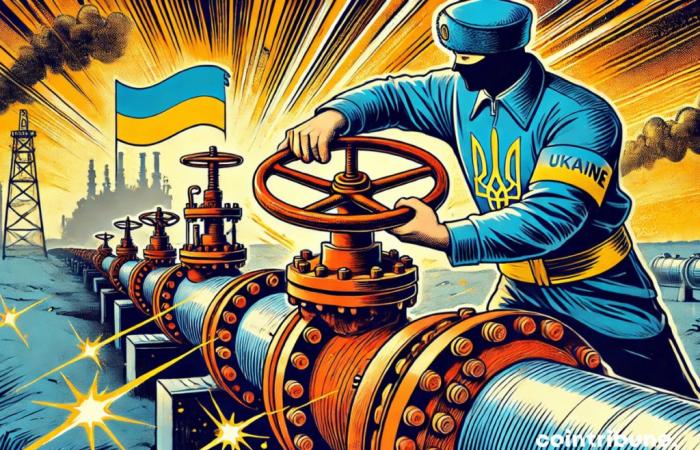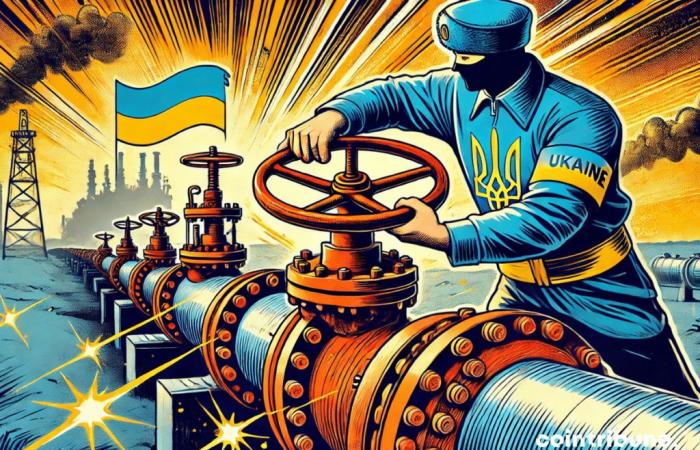19h28 ▪
3
min reading ▪ by
Ariel R.
Ukraine is preparing to close a strategic route for the transit of Russian gas to Europe from January 2025. Certainly, this decision is symbolic in the ongoing energy war. However, it could have major impacts on the economies of several European countries.
Stopping gas transit: an economic and energy crisis for Eastern Europe?
Ukraine’s announcement of cut off Russian gas transit particularly worries the economies of Slovakia, Moldova and Hungary. Heavily dependent on Russian imports, these countries risk seeing their energy bills skyrocket.
- In 2023, Slovakia will have covered 65% of its gas needs via this corridor.
- Moldova, already in a state of energy emergency, still depends on Russian resources for 70% of its electricity.
For these countries, shortages and gas price increases could exacerbate an already critical economic situation.
Russia and Ukraine: a costly standoff for the economy
For Russia, this transit represents a crucial financial windfall of $6.5 billion per year. Its removal will weigh on strategic investments, particularly military investments. For its part, Ukraine will lose hundreds of millions of dollars in transit revenue. Which further complicates its public finances.
This judgment could also redistribute maps of European energy strategies. Certainly, the European Union has reduced its imports of Russian gas to less than 10%. However, some nations like Austria have recently turned the page on their historic contracts with Gazprom and prefer diversified supplies.
Towards a new European energy strategy?
If some states like Hungary minimize the impact of this cut on their economy thanks to TurkStream, others, like Slovakia, do not have the same room for maneuver. Europe will have to intensify its diversification and investment efforts in des solutions alternatives to avoid an energy supply crisis.
According to analysts, the gradual reduction of European dependence on Russian gas must be accompanied by a overhaul of national energy policies. In any case, the key figures show that this transition will cost billions.
Effective from January 2025, this decision highlights the resilience of certain countries. But not only that! It also reveals the vulnerabilities of Europe’s economy in the face of a global energy crisis.
Maximize your Cointribune experience with our ‘Read to Earn’ program! For every article you read, earn points and access exclusive rewards. Sign up now and start earning benefits.


Ariel R.
My name is Ariela and I am 31 years old. I have been working in the field of web writing for 7 years now. I only discovered trading and cryptocurrency a few years ago. But it’s a universe that interests me a lot. And the topics covered within the platform allow me to learn more. A singer in my spare time, I also have a great passion for music and reading (and animals!)
DISCLAIMER
The comments and opinions expressed in this article are those of the author alone, and should not be considered investment advice. Do your own research before making any investment decisions.
Belgium







